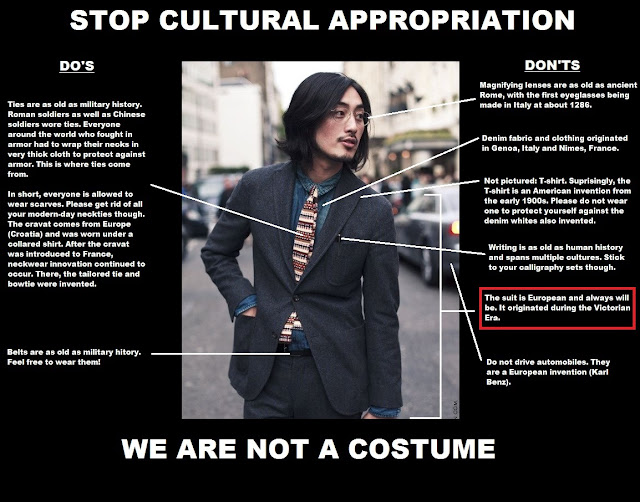Charlie Hebdo, Terrorism, and the Culture of 'You Can't Say That' - Reason.com: "The strangling of free, open commentary on Islam—and on various other ideologies—has had an impact that is as predictable as it is dire. First, it has encouraged certain, usually hard-right sections of European society to harbour a deep, necessarily unspoken suspicion of Islam; to wonder why they may not openly mock it; and to develop, in some cases, a conspiracy theory which sees Islam as the single-handed despoiler of European civilization.
Secondly it nurtures a victim culture within some Islamist quarters and among young Muslims in particular, who now grow up in societies in which the law, politicians, and intellectuals all give the impression that criticism of Islam is wicked. The elevation of Islam above the realm of testy, frank discussion has the unwitting effect of making some Europeans feel more antsy about Islam while cultivating a sense of psychic vulnerability among some Muslims, who bristle and balk and sometimes respond violently to ridicule of their religious beliefs.
It is this moral sheepishness, not Muslims, which Charlie Hebdo blames for Brussels. Where its editorial talks about the "veiled woman" in our local town or the baker who refuses to serve ham, it isn’t blaming these ordinary Muslims for terror; it’s simply asking if we should be allowed to have open, critical debate about their cultural habits, about the veil and other things. Where the editorial says that something like Brussels cannot happen "without everyone’s contribution," it is talking about Europe itself, not Muslims.
It is talking about "the dread" of open debate, "the dread of being treated as an Islamophobe or being called racist," which, it says, makes public life in Europe less open, less honest, and more prickly. It’s right.
And how have Charlie’s critics responded to its critique of the culture of "You Can’t Say That?" By saying to the mag: "You can’t say that." Charlie’s editorial is an "anti-religion rant," said Salon. To which the only reasonable response is: So what? Why shouldn’t people be anti-religion? The anti-Charlie set isn't about protecting Muslims from harm; it’s about protecting Islam from rebuke.
The real problem in Europe today is not so much Islamophobia, though anti-Muslim sentiment certainly exists; it’s Charliephobia, if we take this term to mean the fear of letting a magazine, or anyone else for that matter, dissent from PC orthodoxy, reject relativism, and engage in robust discussion about any worldview they choose.
It’s this culture of worshipping self-censorship over freedom of thought and frankness of debate that is damaging public life and brewing communal tension and in some cases violence. Indeed, I would say that the campaign against Islamophobia has done more to foster awkwardness and bitterness in 21st-century Europe than Islamophobia has.
So yes, a mask has slipped. The Charliephobes’ mask. Their claim to be against "punching down," to care about ordinary, vulnerable people, has been exposed as utter bunkum. In truth, they’re all about protecting a global religion, an ideology, from ridicule, and in the process they’re doing more damage to freedom and social solidarity in Europe than they could ever understand...
The editorial, titled "How Did We End Up Here?", is really about the culture of intellectual caution and suffocating non-judgmentalism sweeping 21st-century Europe (and much of the West.) If the mag blames anything for Brussels, it’s this censorious culture. It suggests the most rotten thing in Europe right now is the PC cult of self-censorship, the widespread "aversion to causing controversy" and "fear of contraction or objection," especially around Islam. It says the Brussels attack was "the end of a philosophical line already begun," a line which tells us to "hold your tongues… give up discussing, debating, contradicting or contesting."
This "philosophical line," this culture of frowning upon and sometimes even punishing criticism of Islam, is deeply entrenched in Europe. In France, as Charlie Hebdo discovered in 2007 when it was taken to court under anti-racism laws for the crime of publishing Muhammad-mocking cartoons, you can actually be arrested for ripping the piss out of Islam. More informally, the idea of "Islamophobia"—which treats everything from opposition to the burqa to discomfort with the Koran as evidence of a swirling, hate-fuelled fear of Muslims—keeps criticism of Islam in check. In Charlie Hebdo’s view, this erection of a ridicule-deflecting force-field around Islam has a terrible impact on community life in Europe..."































